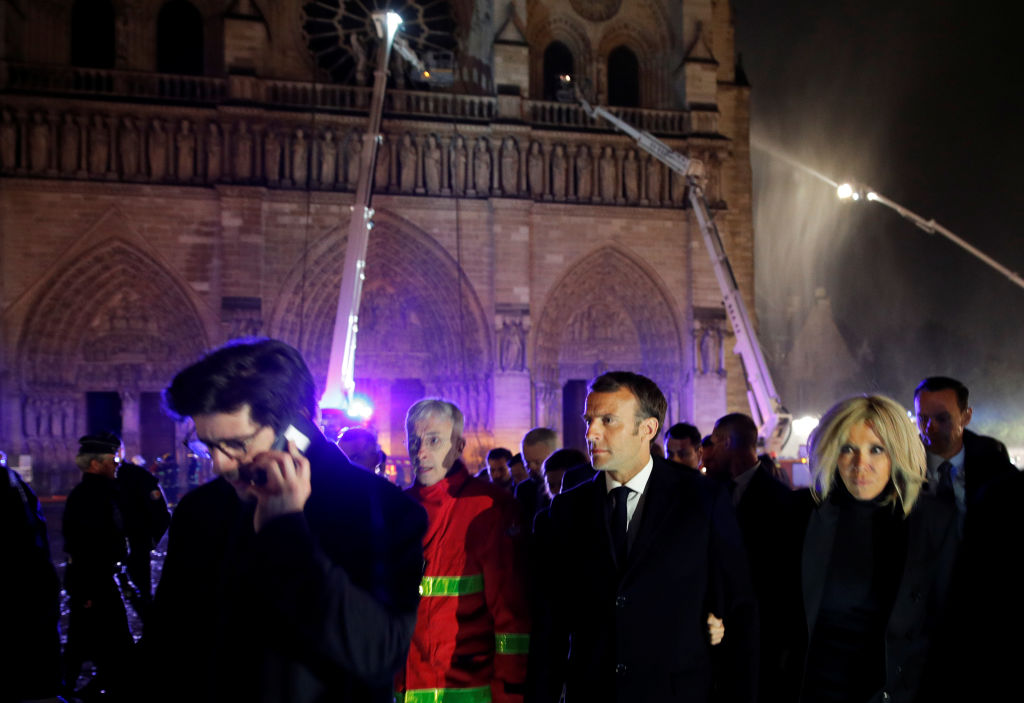The timing of the burning of Notre Dame could not have been worse for Emmanuel Macron. The spire of the 850-year-old cathedral collapsed into the flames at 8pm, the time scheduled for his televised address to the nation.
The president had planned to tell his people in the broadcast what measures would be taken after the three months of Grand Debate, the consultation launched at the start of the year in response to the Yellow Vest protest movement. Instead, Macron rushed to Notre Dame and looked on as the inferno consumed the country’s most historic monument. “Notre-Dame is aflame,” tweeted the president. “Great emotion for the whole nation. Our thoughts go out to all Catholics and to the French people.”
The symbolism won’t be lost on Macron, who from the moment he took office has used his country’s rich history as a backdrop to his presidency. He made his victory speech in May 2017 at the Louvre, and that summer hosted Vladimir Putin in Versailles and invited Donald Trump to the Bastille Day celebrations.
That was when the world was in awe of the young president, the charismatic then-39-year-old who was the progressives’ antidote to the horrors of Brexit and Trump. For nearly a year Macron could do no wrong; now nothing is going right for him. Increasingly isolated at home and abroad, the president is no longer glowing with youthful zest. His country, however, is glowing, albeit in a different sense.
Since the Yellow Vest movement started in November there have been some terrible scenes in Paris. Restaurants, banks, shops, cars and newspaper kiosks set alight by protestors, most of them anarchists and far-left extremists.
The destruction of Notre Dame is being treated as an accident, a consequence of a £5m (€6m) renovation project on the cathedral’s spire and its 250 tons of lead. If investigators confirm that was the case it will at least be a sliver of comfort for the president. Recent statistics revealed that there were 878 acts of vandalism committed against churches in France in 2017; already this year there have been a spate of arson attacks on churches, including at St. Sulpice in Paris last month.
The first politician to have seized on this phenomenon was Marion Maréchal, the former National Front MP, who said in a 2016 interview: “We are closing our eyes to the rise of Christianophobia.” She is no longer actively involved in politics, but the niece of Marine Le Pen was on the front cover of the conservative magazine Valeurs Actuelles last week, and in the interview she gave the strongest hint yet that she will be a candidate in the 2022 presidential election.
The church-going Maréchal is the darling of a conservative right, traditionalists who abhor the progressive politics of the ruling La République En Marche party. They are proud of their culture, their traditions, their faith, and their monuments. Notre-Dame embodied all of these virtues and today it’s in ruins. In their eyes its destruction – even though seemingly accidental – symbolises what is happening to France under this president.







Comments